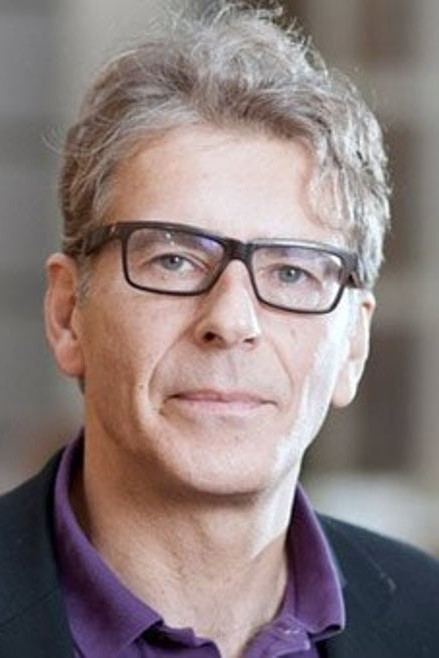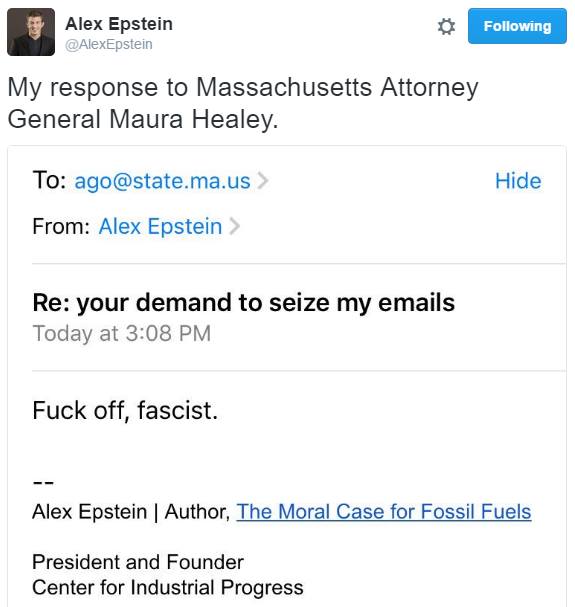Climategate in Review
|
|
||||||||||||||
Climategate in Review
|
|
||||||||||||||

|
|
On December 14, 2009, George Monbiot published an article in Britain's The Guardian, where he laid bare his soul and explained, in no uncertain terms, the philosophy and intent behind the environmental movement. This is bigger than climate change. It is a battle to redefine humanity |
In this article, when describing the then coming 2009 Copenhagen climate summit, Monbiot states:
"This is the moment at which we turn and face ourselves. Here, in the plastic corridors and crowded stalls, among impenetrable texts and withering procedures, humankind decides what it is and what it will become."
And as with all good socialists, the issue for Monbiot is not what will we, as individuals, become. The only relevant question is what will be the transformation for humanity as a whole — with all of the inconsequential individuals simply forced to conform to the single-minded collective will.
And who is to decide this bold new direction for humanity? Well, for Monbiot that's a moot point as the decision has already been cast, with the consequences of that foregone decision sprinkled throughout the remainder of the article. Consider such prescient observations as the following:
"The meeting at Copenhagen confronts us with our primal tragedy."
"Now we find ourselves hedged in by the consequences of our nature, living meekly on this crowded planet for fear of provoking or damaging others. We have the hearts of lions and live the lives of clerks."
"The summit's premise is that the age of heroism is over."
"[I]t is ... a battle between two world views. The angry men who seek to derail this agreement, and all such limits on their self-fulfilment, have understood this better than we have."
"[F]ossil fuels have granted the universal ape amplification beyond its Paleolithic dreams. [... allowing] us to live in blissful mindlessness"
"The angry men know that this golden age has gone; but they cannot find the words for the constraints they hate. Clutching their copies of Atlas Shrugged, they flail around"
"All those of us whose blood still races are forced to sublimate, to fantasise. In daydreams and video games we find the lives that ecological limits and other people's interests forbid us to live."
"There is no space for heroism here; all passion and power breaks against the needs of others. This is how it should be."
As Ayn Rand once wrote:
"Man is the only living species that has the power to act as his own destroyer — and that is the way he has acted through most of his history."
This article correctly summarizes the real issue behind the environmental movement. I agree that it is concerned with nothing less than the redefinition of humanity. And the vision of that new humanity is as a passive video-gamer, vicariously placated by virtual-acts that were once undertaken in reality. With our lion hearts caged, and all thoughts of heroism ground out of existence, we should all voluntarily accept our new place as clerks and stewards of the planet, and sacrifice ourselves in service to "other people's interests". Nothing more can be expected when the "original sin" of our human nature unavoidably leads to "primal tragedy".

|
|
Is Monbiot just whistling into the wind, or do concepts such as his have real impact on the culture? Just how far are people willing to go with his ideas of "redefining humanity"? Here is an article appearing the The Atlantic titled, How Engineering the Human Body Could Combat Climate Change, which certainly answers that question! This is an interview with Matthew Liao, one of the three authors of the paper, Human Engineering and Climate Change, scheduled to appear in the journal Ethics, Policy & Environment. |
The basic thrust of the article rests upon the simple assertions that:
So, in the eyes of these researchers, engineering solutions to the planet are simply too dangerous to contemplate, but humanity is apparently an expendable resource that is readily available for experimentation! And remember, this is a paper scheduled for a journal on ethics! Let's examine some of the specific ideas being discussed:
One possibility under consideration is something straight out of A Clockwork Orange:
Atlantic: "You suggest that humans could be given meat alongside a
medication that triggers extreme nausea, which would then cause a
long-lasting aversion to meat eating."
![]()
Liao: "I think it's important to note that it wouldn't necessarily
need to be a pill. We have also toyed around with the idea of a
patch that might stimulate the immune system to reject common bovine
proteins, which could lead to a similar kind of lasting aversion to
meat products."
And from a 2016 World Science Festival video:
Liao: "There's this thing called the Lone Star tick where if it bites you, you will become allergic to meat... So that's something we can do through human engineering."
Another promising idea considered superior to improving resource utilization, would be to engineer humans to be shorter and lighter!
Atlantic: "Your paper also discusses the use of human engineering to make humans smaller."
Liao: "[S]ize reduction could be one way to reduce a person's ecological footprint. For instance if you reduce the average U.S. height by just 15cm, you could reduce body mass by 21% for men and 25% for women, with a corresponding reduction in metabolic rates by some 15% to 18%, because less tissue means lower energy and nutrient needs."
And taking things a bit further:
"Liao: "[W]e looked into cat eyes, the technique of giving humans cat eyes or of making their eyes more catlike. The reason is, cat eyes see nearly as well as human eyes during the day, but much better at night. We figured that if everyone had cat eyes, you wouldn't need so much lighting, and so you could reduce global energy usage considerably."
But certainly we're not talking about thought control, right?
Atlantic: "In the paper you also discuss the pharmacological enhancement of empathy and altruism, because empathy and altruism tend to be highly correlated with positive attitudes toward the environment."
Liao: "What we have in mind has more to do with weakness of will. For example, I might know that I ought to send a check to Oxfam, but because of a weakness of will I might never write that check. But if we increase my empathetic capacities with drugs, then maybe I might overcome my weakness of will and write that check."
Liao: "If you're very pessimistic about the world, and you take a drug that will cause you to develop a more positive outlook, then in some sense those are beliefs that you already desired. In a case like that the ethical issues might fall away on account of the fact that you previously desired those beliefs, and that you're aware of the consequences of taking the drug."
Could Aldous Huxley or Ira Levin possibly hit the nail closer to the head!?
And what are the ethical considerations for individual freedom?
Atlantic: "In your paper you suggest that some human engineering solutions may actually be liberty enhancing. How so?"
Liao: "That's right. It's been suggested that, given the seriousness of climate change, we ought to adopt something like China's one child policy. There was a group of doctors in Britain who recently advocated a two-child maximum. But at the end of the day those are crude prescriptions—what we really care about is some kind of fixed allocation of greenhouse gas emissions per family. If that's the case, given certain fixed allocations of greenhouse gas emissions, human engineering could give families the choice between two medium sized children, or three small sized children. From our perspective that would be more liberty enhancing than a policy that says "you can only have one or two children." A family might want a really good basketball player, and so they could use human engineering to have one really large child."
Liao: "If you crave steak, and that craving prevents you from making a decision you otherwise want to make, in some sense your inability to control yourself is a limit on the will, or a limit on your liberty. A meat patch would allow you to truly decide whether you want to have that steak or not, and that could be quite liberty enhancing."
Here is some Newspeak that even has George Orwell spinning in his grave!
The fact that a position such as this can get discussion space and a reasonable hearing in a main stream publication such as The Atlantic is an indictment of just how pervasive the radical environmental message has penetrated our culture.
In a 2005 interview with No Compromise, Jensen stated:
"I want to bring down civilization. ... It is really clear that for the past 6,000 years, civilization has been killing the planet ... and I will do whatever it takes to get there."
And during an interview in Democracy NOW!, on November 26, 2010, Jensen had the following to say:
"Derrick, you've written, 'Civilization is not and can never be sustainable.'"
"Yeah. Several years ago, I was riding around in a car with a friend of mine, George Draffan, with whom I've written a couple books. And I was just making conversation. I said, "So, George, if you could live at any level of technology that you want to, what would it be?" And he was not in a very good mood that day, and he said, "That's a really stupid question, Derrick, because we can fantasize whatever we want, but the truth is there's only one level of technology that's sustainable. And that's the Stone Age."
In an apparent failed attempt to provide a practical demonstration of what he envisions for all of us, Wikipedia quotes Jensen as saying:
"In order to save the planet, I once stopped using toilet tissue and used my bare hand. I did this for two months. But even as stinky as Western culture is, it wasn't nearly as stinky as my hand. So I quit using my bare hand. I use ferns instead. To all those ferns who met such an end, I apologize. Hell, maybe I'll just use friggin' Charmin again."
However, frustration over the fact that the world does not bend to his will has led Jensen to propose what he calls a culture of resistance, which is merely a euphemism for organized acts of violent destruction aimed at all aspects of modern civilization. Consider the following statements:
"There can be no real peace when living with someone who has already declared war ... There is only one language that they understand, and everyone here knows what it is. Yet we don't speak of it openly." – A Language Older Than Words (2000)
"Every morning when I awake I ask myself whether I should write or blow up a dam. I tell myself I should keep writing, though I'm not sure that's right." – A Language Older Than Words (2000)
"I was once being interviewed by a dogmatic pacifist and he felt that I wanted all activists to act like assassins. That's not true. What I want is for all activists to act like they are serious about their resistance and that might include assassinations." – Truthout (09-05-10)
"There are two million dams in the United States. There's about 70,000 dams over six-and-a-half-feet tall. And if we only took out one of those dams every day, it would take 200 years to take them all out." — Democracy NOW! (11-26-10)

|
|
Kari Norgaard is a professor of sociology and environmental studies at the University of Oregon. In a paper presented to the Planet Under Pressure conference in London, Norgaard argues that individuals who doubt the catastrophic consequences of anthropogenic climate change are exhibiting a "sickness" needing to be "treated". On a societal level, she compares resistance to the implementation of large scale political programs to address climate change "to racism or slavery in the U.S. South." |
As Anthony Watts reports here, there was so much controversy over her pronouncements, that the original press release, which included the statement:
"Resistance at individual and societal levels must be recognized and treated before real action can be taken to effectively address threats facing the planet from human-caused contributions to climate change"
was silently edited to remove the phrase "and treated". How convenient, when your positions are so easily mutable in response to public controversy.
In a more recent open letter to President Obama, Norgaard suggests that in regard to environmental matters:
"Don't wait for public consensus on climate change."
"Americans have been remarkably out of step in our understanding of
climate change. ...
Public opinion does matter in a democracy, but this is a time when
following it would be a serious mistake."
In other words, consensus in a democracy is desirable if it aligns with your personal views, but when it does not, the views of the citizens should be ignored and the president should act as a dictator, imposing his will upon the ignorant. When you cannot convince others, there is always force waiting in the wings!

|
|
After enough time has passed, with the ideas of Monbiot, Jensen, Norgaard, and others going substantially unchallenged, we finally begin to see the influences of their philosophy echoing in the mainstream press. Take for instance this article which appeared in Forbes magazine. The author, Steve Zwick, proposes his "solution" for dealing with those who have not climbed aboard the catastrophic, anthropogenic, climate change bandwagon. |
Quoting from the article:
"We know who the active denialists are — not the people who buy the lies, mind you, but the people who create the lies. Let's start keeping track of them now, and when the famines come, let's make them pay. Let's let their houses burn until the innocent are rescued. Let's swap their safe land for submerged islands. Let's force them to bear the cost of rising food prices."
After receiving considerable blowback regarding his plan, Zwick felt it necessary to later go back and amend his article with a disclaimer that he was not actually inviting people to burn down the houses of others. But that seems disingenuous, as his true feelings are clearly on display. And of course, like all good statists, he was not suggesting that individuals should take personal responsibility for their own beliefs and actions, but instead turn that function over to government thugs who will implement their "plans" upon their behalf.
Yes, your disagreement with Mr. Parncutt and his merry band of "scientists" who have given us everything discussed above, is sufficient grounds for your summary execution in his estimation. And Parncutt doesn't just limit his thinking to those who disagree with him about climate change. Apparently disagreeing on any sufficiently important subject will earn you the death penalty. For example:
"That raises the interesting question of whether and how the Pope and his closest advisers should be punished for their consistent stand against contraception in the form of condoms. ... The number of people dying of AIDS would have been much smaller if the Catholic Church had changed its position on contraception in the 1980s. ... We are talking about millions of deaths, so according to the principle I have proposed, the Pope and perhaps some of his closest advisers should be sentenced to death.
To attempt to justify his views, Parncutt offers up the following statistics:
"For the purpose of argument, let's give the GW deniers the benefit of the doubt and imagine that the scientists are wrong with a high probability, say 90%. If they are right, some 100 million people will die as a direct result of GW. Probably more like a billion, but this is a conservative estimate. If the probability of that happening is only 10%, then effectively "only" 10 million people will die."
"If they are right ..." Yes, he is proposing to execute people based upon an "if"! An "if" offered up by the same mythical, homogeneous, and fully unified group of "scientists" that the progressives constantly conjure up. That group that has failed to make a single credible measurable prediction about earth's climate. Then, based upon these unsupported "estimates" he offers the following startling statement:
"Consider this: If ten million people are going to die with a probability of 10%, that is like one million people dying with a probability of 100%."
What!? Well, professor Parncutt is an expert on the psychology of music, which more than qualifies him to hold court on geoclimatic issues, while absolving him of being held accountable for such advanced subjects as math or logic.
Then, in the best 1984 tradition, Parncutt suggests:
"If a jury of suitably qualified scientists estimated that a given GW denier had already, with high probability (say 95%), caused the deaths of over one million future people, then s/he would be sentenced to death. The sentence would then be commuted to life imprisonment if the accused admitted their mistake, demonstrated genuine regret, AND participated significantly and positively over a long period in programs to reduce the effects of GW (from jail) — using much the same means that were previously used to spread the message of denial. At the end of that process, some GW deniers would never admit their mistake and as a result they would be executed. Perhaps that would be the only way to stop the rest of them. The death penalty would have been justified in terms of the enormous numbers of saved future lives."
Here the curtain is ripped away to reveal the true motivations of scum such as Parncutt. He doesn't really care to control your actions — it is control of your mind and soul that he seeks! For a dramatization of the psychology of such people, I recommend the short story, "A Thousand Deaths", by Orson Scott Card, which appears in his anthology, "Maps in a Mirror" and the paperback collection, "Flux".
A copy of Parncutt's original article, discussed above, may be found here. After considerable blowback from a number of websites, Parncutt significantly revised his article, a copy of which may be found here. A comparison between the two versions is instructive. It's quite a transition to move within less than 24 hours from suggesting "the death penalty is an appropriate punishment for influential GW deniers." to "I wish I had a good solution."
For additional information and comments on the nutty professor, check out articles at Watts Up With That? and Jo Nova.

|
|
The insanity driving the radical environment movement seems to
have no bounds. Recently (September, 2019), Magnus
Soderlund, a Swedish behavioral scientist from the Stockholm
School of Economics, argued in a public presentation titled,
"Can You Imagine
Eating Human Flesh?," that cannibalism was one of the
important steps that should be considered in the fight against
climate change.
As reported here, here, and here, Soderlund asks:
"Are we humans too selfish to live sustainably?" And if "conservative" taboos cause people to be squeamish at the thought of eating human meat and flesh, well, as an expert in behavior, he is sure that they can be "tricked" into "making the right decision." |
This call to censor and punish anyone who disagrees with the "official" climate position continues to garner supporters. For example:
"Attorney General Eric T. Schneiderman today joined Attorneys General from across the nation to announce an unprecedented coalition of top law enforcement officials committed to aggressively protecting and building upon the recent progress. ... With gridlock and dysfunction gripping Washington, it is up to the states to lead on the generation-defining issue of climate change."
Well, if you can't skin the cat one way, there are plenty more tricks up their sleeve.
And jumping on the band wagon is everyone's favorite science clown, Bill Nye, who sees those who express "extreme doubt" regarding the "official" anthropogenic global warming position, as criminals who should be jailed. When questioned about the chilling effect that such a position would have on scientific research in general, Nye responded: "That there is a chilling effect on scientists who are in extreme doubt about climate change — I think is good."
And this is one of the people the media props up as a popularizer of "science" for the general public!
Of course, legislated censorship is the easiest way to achieve one's goals, and it is made especially effective as more and more aspects of life are controlled by an agenda-driven government. And nothing is better then when one holds the reigns of indoctrination over the youth. Quoting from the article:
"The Portland Public Schools board unanimously approved a resolution this week that bans textbooks and other teaching materials that deny climate change exists or cast doubt on whether humans are to blame.
"The resolution, introduced by school board member Mike Rosen, also directs the superintendent and staff to develop a plan for offering "curriculum and educational opportunities that address climate change and climate justice" in all Portland public schools, the Portland Tribune reported."
This is nothing less than the tactics of the Inquisition, where all dissent is suppressed as being too dangerous to allow being even considered.
Quoting the CA Senate Rules Committee's floor analysis of the bill:
"This bill explicitly authorizes district attorneys and the Attorney General to pursue UCL claims alleging that a business or organization has directly or indirectly engaged in unfair competition with respect to scientific evidence regarding the existence, extent, or current or future impacts of anthropogenic induced climate change."
Although failing to pass, the mere fact that this form of intimidation tactic and violation of first amendment rights is actually being discussed in legislative bodies is chilling.Australian marine scientist Paul Ridd has been censured by James Cook University. Why?
"He [Ridd] found out two of the world's leading organizations studying coral reefs were using misleading photographs to make the case that global warming was causing a mass reef die-off. Ridd wasn't rewarded for checking the facts and blowing the whistle on misleading science. Instead, James Cook University censured Ridd and threatened to fire him for questioning global warming orthodoxy."
"'My point is not that they have probably got this completely wrong but rather what are the quality assurance measures they take to try to ensure they are not telling a misleading story?' Ridd said."
"Despite the campaign to tamp down on reef alarmism, Ridd was punished by James Cook University for 'not displaying responsibility in respecting the reputations of other colleagues.' The university even warned that if he does this again, he'll be tried for serious misconduct."
Continuing on the theme of making "climate denial" a federal crime, Rhode Island Senator Sheldon Whitehouse has taken his propaganda campaign on the road. In this presentation to the Carnegie Council for Ethics in International Affairs, Whitehouse claims that all of America—including our ambassadors and members of the armed services—are being "hurt" because "deniers" create a different "view" of America abroad. No facts are ever offered by Whitehouse to back his claims. He simply asserts his position and denigrates those who disagree. It is simply another example of intimidation tactics backed up by threats of fines, jail and loss of employment, used to force others to censor their own thoughts and beliefs and become mouthpieces for government propaganda.
"The problem has been that the uniformed military has been reluctant to put its voice into—or its image into this fight. ... What the Navy has done that's been really interesting, ... they're starting to evaluate their base commanders on how well they communicate the risk of climate change about the base. So, if you're the base commander ... you are suddenly [sic] have on your checklist of what you're evaluated on, how well you've communicated what the risk of climate change is."
These are just a few examples of many that show how desperate the climate alarmists have become in the face of the mounting evidence against their claims. However, people are pushing back against this censorship and attack upon their First Amendment rights. For example:
The Competitive Enterprise Institute didn't take things lying down.
"There are few more rewarding sights than a bully scorned, so let's hear it for the recent laments of Attorneys General Claude Walker (Virgin Islands) and Eric Schneiderman (New York), two ringleaders of the harassment campaign against Exxon and free-market think tanks over climate change.
"Consider Mr. Walker's recent retreat in District of Columbia superior court. In April he issued a sweeping subpoena to the Competitive Enterprise Institute, demanding a decade of emails, policy work and donor names. The goal is to intimidate anyone who raises doubts about climate science or the policy responses.
"CEI fought back. It ran a full-page newspaper ad highlighting the Walker-Schneiderman effort to criminalize speech, and it counter-sued the Virgin Islands, demanding sanctions and attorneys fees. ...
"Mr. Walker quietly withdrew his subpoena on May 20 (though retaining the right to reinstate it). CEI is pressing ahead with its suit anyway, and in an extraordinary filing on June 2 Mr. Walker essentially said 'never mind.' He asked the court to dismiss CEI's motion for sanctions and fees, writing that the think tank had "wasted enough of [his office's] and the Court's limited time and resources with its frivolous Anti-SLAPP motion."
Alex Epstein, president of the Center for Industrial Progress was one of many organizations subpoenaed by a group of state Attorneys General as part of a larger witch hunt intended to silence ExxonMobile and anyone else speaking out against the the government's propaganda on energy and climate. Epstein's reply?

Anthropogenic global warming, and environmentalism in general, operate from a primacy-of-consciousness position where thought, by way of a manufactured narrative, supersede and actually determine the facts of reality for its adherents. This is the epistemological foundation that makes all of the above possible.
However, environmentalism is just a small piece of the much broader, nihilistic, anti-life, Postmodern philosophical movement that promotes moral/cultural relativism and thereby undermines the ability to form value judgements, destroying not only the core function of ethics, but subverts discriminating conceptual though itself. Postmodernism teaches that there are no principles—no absolute truths—to guide us in judging right from wrong or good from bad, leaving individuals at the mercy of whatever indoctrination they happen to be force-fed.
Postmodernism is too broad a subject to tackle further in this forum that focuses on the specifics of the global warming agenda, but in case there was any question as to the anti-conceptual nature of this movement, consider the following example which brilliantly cuts across disciplines to blaze new trails in the quest to make swiss cheese out of the human capacity to reason. Four authors from the University of Oregon have devised a new approach for the study of climate science. Here is the abstract:
"Glaciers are key icons of climate change and global environmental change. However, the relationships among gender, science, and glaciers – particularly related to epistemological questions about the production of glaciological knowledge – remain understudied. This paper thus proposes a feminist glaciology framework with four key components: 1) knowledge producers; (2) gendered science and knowledge; (3) systems of scientific domination; and (4) alternative representations of glaciers. Merging feminist postcolonial science studies and feminist political ecology, the feminist glaciology framework generates robust analysis of gender, power, and epistemologies in dynamic social-ecological systems, thereby leading to more just and equitable science and human-ice interactions."
Never underestimate those "human-ice interactions"!
If you haven't been punished enough, read the entire thing here.
| Back up to: |
|
Index |
|
|
||
| Next Section: |
|
The United Nation's Agenda 21 |